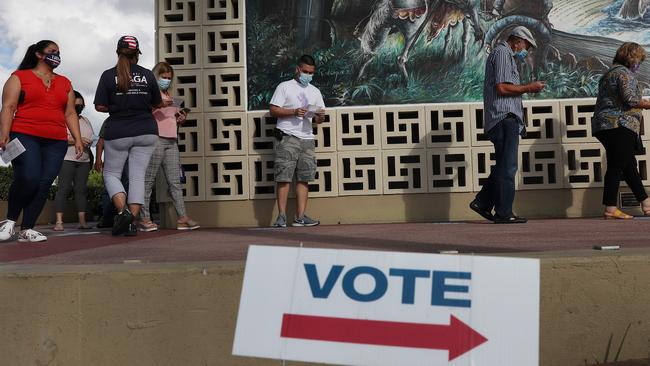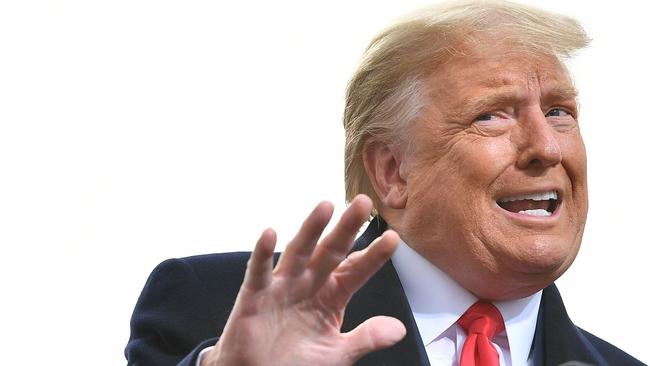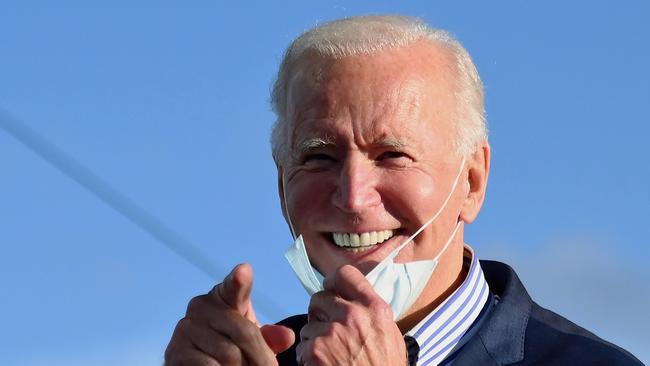US election 2020: COVID-19 brings out the partisans
Biden will certainly win the popular vote, but like Hillary Clinton before him, he might find Trump’s pragmatism harder to overcome.

Yet the beachfront bars were open and as we approached our chosen establishment we were given an unthinkable choice; head downstairs to mingle with the crowd and order food immediately at the bar, or wait for a table upstairs where apparently social distancing would be in place and the staff would be wearing masks. As you would expect, we took the upstairs option, but there was no obvious distancing, the dining area was full, not all the staff wore masks and I think we were the only customers who sported them walking in.
State by state, city by city, business by business and person by person, coronavirus precautions in the US vary from outright denial and the completely blase, to sensible precautions with strict social distancing. There are groups campaigning for compulsory mask-wearing and other movements urging the burning of masks.
Where masks are mandatory the enforcement is lax. Last month local authorities in South Carolina allowed a “Carolina Shag” dancing competition to go ahead for senior citizens at Myrtle Beach; competitors and musicians were supposed to wear masks but most did not and now at least two dozen have been infected, and five are dead.
Fittingly, in this confounded social media age, this is the US administration and presidential election that went viral. Whatever happens — and there is still a clear path to victory for the Republicans — Donald Trump’s presidency will be remembered for being the first to assault and overcome mainstream media through aggressive use of personal digital media, and as one where economic recovery was slammed by a pandemic originating in China.
Pandemic politics in the US could prove decisive. Certainly, COVID is almost all the Democrats want to talk about — that is, whenever Joe Biden has braved the outside world, donned his black mask, and delivered one of his scripted media performances about a looming “dark” winter.

This could prove a massive miscalculation. For all his routinely bizarre and inconsistent messaging, attempting to pin the blame on Trump for a coronavirus that has delivered shocking health and economic consequences in most countries across the globe is one hell of a stretch.
It tends to underestimate the intelligence of mainstream voters — a chronic failing of left-of-centre politics. It also misjudges the pragmatic and even fatalistic approach of many Americans.
Such is the buy-in of the political/media class into this narrative that it has become accepted wisdom to say that Trump’s handling of the pandemic has been a disaster. Yet few examples are provided, beyond his wildly fluctuating and sometimes absurd rhetoric.
The worst you could say of Trump is that his inconsistent messaging has provided poor national leadership which, admittedly, is a pretty major error, except that not a single world leader has been consistent on the pandemic response. As more has become known, advice has changed on suppression methods and medium-term strategies.
Unless a vaccine becomes available within months, it will become increasingly apparent that the lockdown zealots have boxed themselves into a terribly costly and damaging conundrum — either allow their communities to wither and die, or accept their strategies were wrong and start to open up.
For all the COVID trauma in places like the US, Britain and Western Europe, they may be placing themselves further down a curve that all nations, including Australia, will have to follow eventually.
The truth is that Trump banned international arrivals early, bumped up supplies of medical equipment early and invested early in research and trials on treatments and vaccines. Just as has occurred in our federation of Australia, most of the day-to-day management of the pandemic in the US, and most of the disastrous responses, have been presided over by the states.

The politics are so jaundiced on this that the Democrat Governor of New York, Andrew Cuomo, who misplaced thousands of federally supplied ventilators and forced infected patients into aged care homes, is lauded by the media as a COVID saviour — he has even published a book on his experiences. The coronavirus debate in the US is intensely partisan and extremist — the Left blames Trump for a threat they consistently overstate, and the Right dismisses what is obviously a major public health challenge.
The question is what extreme lies closest to mainstream voters in battleground states. Do American families want to hide from the virus and suffer in economic decay, or do they want to try to live their lives as normally as possible?
The politics of fear is at play. Actions always speak louder than words, so forget Trump’s feverish rhetoric; the most effective blow he struck against the Democrat hysteria was when he became infected and brushed off the disease, to continue his raucous rallies and press-the-flesh campaigning with COVID-19 immunity.
Now the Democrats and the Left-liberal media accuse Trump of being a superspreader through his campaign rallies and talk about infection with the virus as if it is a death sentence. (By the way, the hard-left partisan posturing of stations such as MSNBC and CNN makes Fox News seem like a paragon of balance and objectivity.) Americans, to the extent that their votes are decided by this issue, are unlikely to be conned into either blaming Trump or concluding that lockdowns are the answer.
We all have our personal relationship with this microscopic virus — apart from concerns about elderly parents and vulnerable friends, I have always been relatively relaxed about the coronavirus, but in the US this week it has apprehended my attention for three reasons: catching it over here would be deeply inconvenient and disheartening, with family and a familiar health system so far away; it is rampant and likely to spread more wildly over the coming winter; and the hyper-partisan approach to the issue is shaping one of the most bizarre election contests of modern times.
Trump seems to think he can make the virus go away if he mocks it, and Biden talks about the coronavirus in the same way Daniel Andrews does, suggesting it is a cognisant, evil and conniving foe. The virus does not conform to any of these nutty formulations.
COVID-19 simply exists, it will continue to exist indefinitely, and unless there is a highly effective vaccine it most likely will have to work its way around the population until enough are infected to deliver herd immunity. Until then we need to be sensible about slowing its progress without destroying our societies.
If you want to see the costs of over-reaction, look at Victoria. A community of more than six million people has been smashed economically and socially for six months in a way that simply was not necessary.

Medical experts have told us all along that some of the more onerous measures were not necessary and had doubtful health benefits. And given the state still will need to deal with infections and outbreaks in the months and years ahead, what was the point?
In the US the national mindset, spirit of individualism and primacy of free enterprise mean people would not tolerate such a big- government, freedom-crushing and risky social and economic experiment. The truth is that the campaign pandemic debate rages between the extremes of a President who downplays the virus but at least comprehends that life must go on, and a Democrat candidate who seems cowed by it and determined to push for further lockdowns.
Neither man promotes the middle path of masks, social distancing and adaptation that will undoubtedly emerge post-election — and which most voters surely would expect and support. But that is the nature of America’s polarised politics.
For Biden to win, he will need to take a host of middle-America states like Michigan, Wisconsin, North Carolina and Pennsylvania where people need to work to feed their families. Yet he is the shut-it-down candidate, promising to shut down the oil and gas industry, permanently, to save the planet, and shut down everything, temporarily, to defeat the virus.
Biden will certainly win the national popular vote, with huge anti-Trump votes in places like California, New York and Massachusetts. But like Hillary Clinton before him, he might find the electoral college, and Trump’s pragmatism, harder to overcome.




The crazy dichotomy of America’s coronavirus response was laid out for me and my Sky News cameraman and producer this week when we turned up at a bar to grab some dinner in Daytona Beach, Florida. Just to set the scene, on that particular day more than 4000 additional COVID-19 cases had been detected in the state of 21 million, taking the total to more than 770,000, and there were 77 deaths added to a Sunshine State toll topping 16,500.